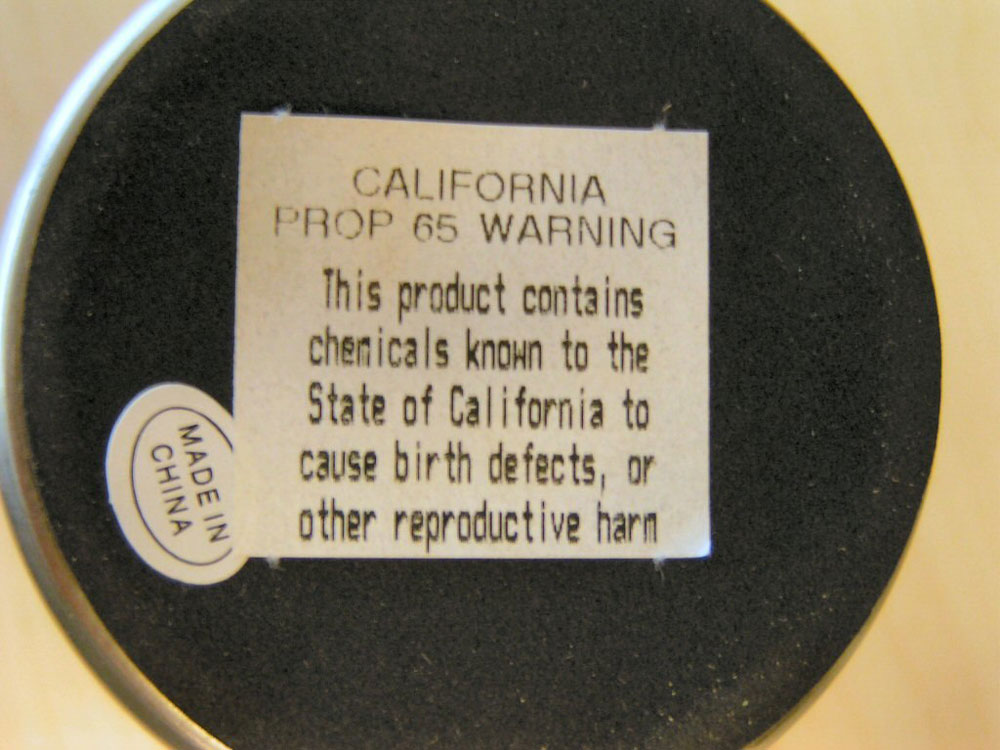
June 6, 2019; Ars Technica
Warning! Chemicals known to the State of California to cause cancer and reproductive toxicity, including acrylamide, are present in coffee.
This was what greeted coffee lovers (or just coffee consumers) in California until June 3rd. On that date, California officials approved a new regulation that superseded its Proposition 65 (the Safe Drinking Water and Toxic Enforcement Act of 1986) that lists more than 900 chemicals that could require warnings of potential cancer exposure. This new regulation declaring coffee free of any significant cancer risk (and needing no warning signs) follows a series of lawsuits—some ongoing—from a secretive nonprofit called the Council for Education and Research on Toxics (CERT).
Just who are CERT? And how do they figure into this coffee-lovers saga? The story is wrapped in the public’s fear of exposure to carcinogens and in supposed payouts of substantial dollars to CERT for the settlement of multiple lawsuits around the presence of acrylamide in foods that are part of our fast food and everyday lives. But where are those settlement dollars? Because if that money came to the organization, it appears to have passed through CERT’s hands without much of a record. According to our cursory review of its 990 tax returns (here and here), there’s no indication of that kind of money flowing through the organization. In fact, in the majority of years for which there are reports, CERT filed only a postcard return, which is for organizations with gross receipts of less than $50,000. Only in a few cases since 2006 (including in 2017) did the organization even file an IRS EZ form—used when your organization has less than $200,000 in gross receipts or less than $500,000 in assets.
But CERT has, since 2001, sued multiple food purveyors, including McDonald’s, Burger King, Dunkin’ Donuts, Target, Starbucks, Unilever, Proctor & Gamble, Walmart, and others. All of these lawsuits have been based on Proposition 65 violations, specifically on the presence of acrylamide in foods and products. In doing this, CERT has reportedly seen millions of dollars in settlements. But CERT itself remains something of a mystery other than its crusade against acrylamide in foods and products. CERT has no website, and its address is that of its lawyer, one Raphael Metzger of the Metzger Law Group.
Since its formation in 2001, the organization has waged complaints against dozens of companies, all alleging Proposition 65 violations for having acrylamide in food, beverages, and personal products. Acrylamide is indeed in various products and foods—a lot of foods.
Sign up for our free newsletters
Subscribe to NPQ's newsletters to have our top stories delivered directly to your inbox.
By signing up, you agree to our privacy policy and terms of use, and to receive messages from NPQ and our partners.
Acrylamide is formed when foods are browned during roasting, frying, searing, baking, or otherwise heating over 120° Celsius. It’s created via the tasty Maillard reaction, a complex chemical exchange between amino acids (particularly asparagine) and sugars that are reduced during the heating process. As such, it’s found to some extent in a wide variety of foods, like French fries, toasted bread, cereals, cookies, coffee, roasted nuts, prune juice, olives, etc.
Health organizations and regulatory agencies have linked acrylamide to cancer risks, largely based on studies in which animals were given large doses—well beyond normal exposure levels in people. The International Agency for Research on Cancer (IARC) classifies acrylamide as a “probable human carcinogen,” while the US National Toxicology Program (NTP) has classified acrylamide as “reasonably anticipated to be a human carcinogen.”
In searching for some real people who make up CERT, Beth Mole of Ars Technica found only four names as founders of the organization. The one who seemed most likely to have some connection was a Martyn Smith, holder of an endowed chair of cancer epidemiology at University of California–Berkeley. While none of the founders were reachable (one was deceased), the paper trail to Smith and his work seemed to indicate that some of the millions in settlements may have made their way to his research, according to Mole.
Smith has also provided expert testimony in several of the lawsuits brought by CERT. What is interesting is that Smith’s connection to CERT is not mentioned in his curriculum vitae, and questions posed to Smith from Mole have remained unanswered.
While some coffee makers and purveyors have already settled lawsuits with CERT, other lawsuits remain. Given the new California regulation declaring coffee no longer a cancer risk, the outcomes of the remaining lawsuits may not bode well for CERT. For those of us who need a cup of coffee to start our day (and sometimes many more to keep us going), knowing that we are not adding to our cancer risk is one less worry. Thanks, California!—Carole Levine













